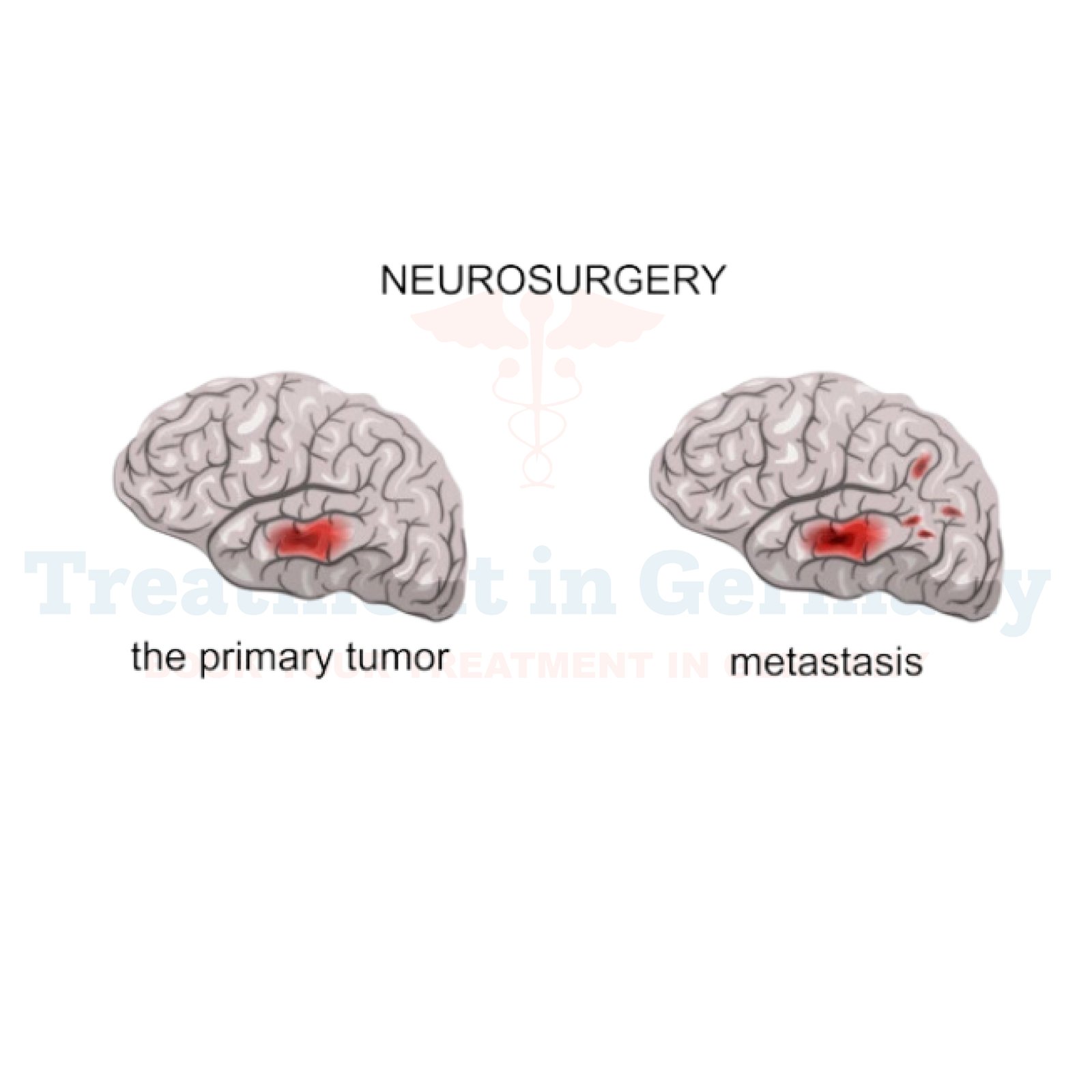An advanced surgical procedure called brain tumor resection is used to remove abnormal growths, or tumors, in the brain. In Germany, this treatment unites innovative techniques and high technology to improve outcomes for patients with different kinds of brain tumor resections and spinal tumors.
Resection is often critical for managing symptoms, improving quality of life, and prolonging survival, particularly for aggressive or large brain tumor resections impacting the function of the brain.
The surgical removal of a brain tumor and surrounding tissue is known as brain tumor resection, and it is done to alleviate symptoms and avoid consequences. This specialist procedure is carried out by neurosurgeons to remove as many tumors as possible while protecting healthy brain tissue.
The size, nature, and location of the tumor determine how complicated the procedure is. To improve patient outcomes, it is frequently used in conjunction with chemotherapy or radiation therapy for malignant tumors and can be curative for benign tumors.
Types of Brain Tumor Resection Treated
The German medical sector deals with a huge variety of brain tumor resection. All these have to be treated individually because of the site of its growth, rate, and possible influence on the nervous system.
Typically Benign Tumors
Malignant Tumors
Causes and Symptoms of Brain Tumor Resections
Brain tumor resections can offer various symptoms depending on their location and size:
Some predisposing conditions are neurofibromatosis types 1 and 2, Turcot syndrome, Gorlin syndrome, Tuberous sclerosis complex, and Li-Fraumeni syndrome.
Diagnosis Methods in Germany
German hospitals apply the multi-modal form of diagnosis for brain tumor resections:
Other tests may include tests on markers for tumors and genetic anomalies to define the exact nature of brain tumor resection
Treatment options available in Germany
Germany is known to be opting for advanced surgical and non-surgical treatments based on the needs of the individual.
Brain Tumor Resection surgery
One of the most optimal ways of treating brain tumor resections is a resection surgery, which majorly removes as much tumor tissue without destroying any other areas of the healthy brain. Techniques used in Neuronavigation, microscopes, and ultrasonic aspirators make the surgery more accurate and safe.
Radiation Therapy
Different types of radiation therapies are used postoperatively to eradicate the remaining Brain tumor resection cells. Some available options are Stereotactic Radiotherapy, Intensity Modulated Radiation Therapy (IMRT), and Image-Guided Radiation Therapy (IGRT), because each delivers a precise amount of radiation to the brain lesion while avoiding the healthy, normal tissue.
Chemotherapy and Other Drug-Based Therapies
Palliative Care
For such patients where complete brain tumor resection cannot be performed, their palliative care provides comfort and quality of life with medications like mannitol and corticosteroids for reducing intracranial pressure and inflammation.
New Techniques in Germany
Brain tumor resection treatment centers in Germany are especially popular for their novel techniques:
Frequently Asked Questions
In Germany, what types of brain tumor resections are performed?
Treatment is given for benign as well as malignant brain tumor resections, including rarer forms like chordomas and medulloblastomas in Germany.
What are the symptoms of brain tumor resection?
Headaches, epilepsy, dizziness, and loss of vision or hearing may occur.
What are the tests conducted in Germany?
Evaluation of an MRI or CT scan, biopsy, and spinal tap determines the type of brain Tumor resection and its location.
Is palliative care available?
Yes, for symptom management and quality of life if full removal is not possible.
What new treatments are available?
The cutting-edge treatment options are fluorescence diagnostics, TTFs, and immunotherapy.
👉 Contact us for further information and receive a complimentary consultation.


.webp)
 (1).webp)

.webp)
 (1).webp)


.webp)
 (1).webp)

.webp)
 (1).webp)
